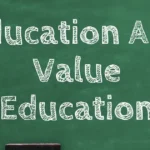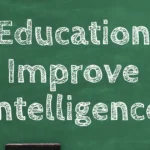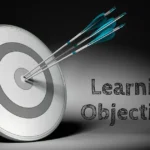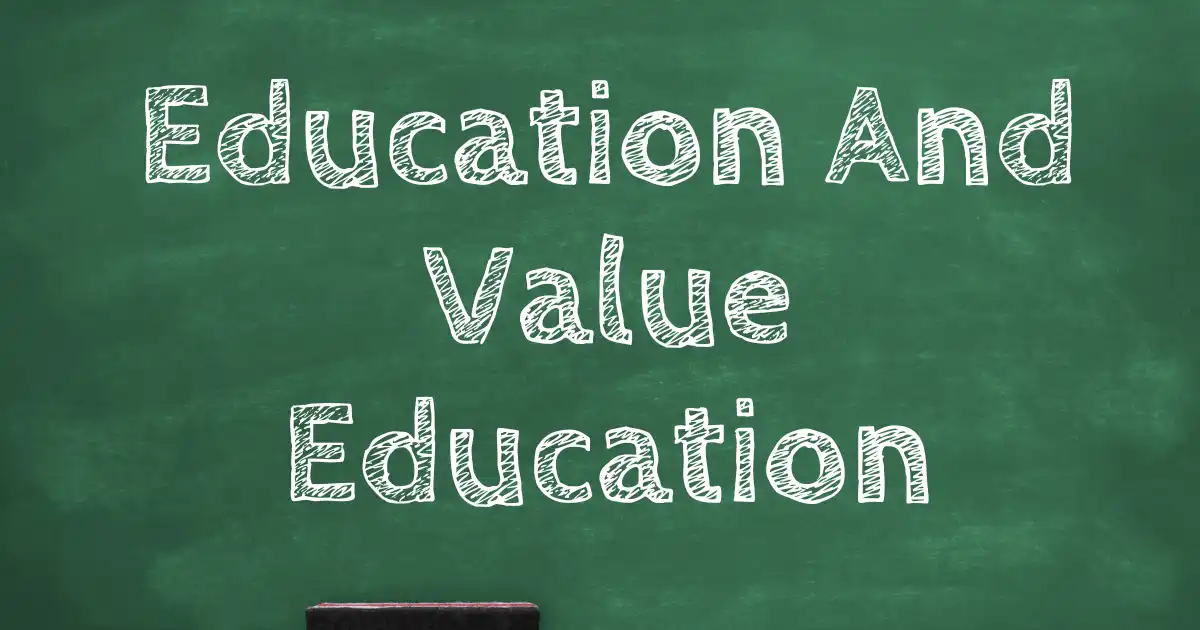Education focuses on knowledge and skills acquisition. Value education emphasizes moral and ethical development.
Education shapes minds through academic learning and skills development. It prepares individuals for professional and personal success. Subjects like math, science, and history are covered in traditional education. Value education, on the other hand, instills values such as honesty, integrity, and empathy.
It aims to build character and ethical decision-making. Both are essential for holistic development. Education equips individuals with the necessary knowledge to navigate the world. Value education ensures they do so with a strong moral compass. Combining both forms a well-rounded individual. Balancing these aspects is key to a fulfilling and responsible life.

Credit: www.researchgate.net
Defining Education
Education is the process of learning and gaining knowledge. It helps individuals grow intellectually and socially. Education builds a foundation for a person’s career and personal life.
Education can be divided into two types: traditional and modern. Each type has unique characteristics and benefits. Let’s explore these differences.
Traditional Education
Traditional education refers to the conventional methods of teaching. It includes classroom learning, textbooks, and lectures. Students usually follow a fixed curriculum.
- Focuses on memorization and rote learning.
- Teachers are the main source of knowledge.
- Emphasizes discipline and structure.
- Assessments are often through written exams.
Traditional education has been around for centuries. It provides a structured environment for learning. Students learn to follow rules and respect authority.
Modern Education
Modern education incorporates new teaching methods and technologies. It focuses on student-centered learning. Modern education encourages critical thinking and problem-solving skills.
- Uses digital tools and online resources.
- Encourages collaborative and interactive learning.
- Flexible and adaptable to individual needs.
- Includes a variety of assessment methods.
Modern education aims to prepare students for a changing world. It promotes creativity and innovation. Students are encouraged to explore and discover their passions.
Core Concepts Of Value Education
Value education goes beyond standard education. It fosters personal growth and holistic development. Understanding its core concepts is key to grasping its importance. These concepts include moral values and ethical values.
Moral Values
Moral values shape an individual’s character and behavior. They guide our actions and decisions. Examples include honesty, kindness, and respect.
- Honesty: Being truthful in words and actions.
- Kindness: Showing care and consideration for others.
- Respect: Valuing others’ opinions and rights.
These values help in building a compassionate and just society. They are essential for personal and social well-being.
Ethical Values
Ethical values define what is right and wrong. They are the principles that govern our behavior. Examples include integrity, fairness, and responsibility.
| Ethical Value | Description |
|---|---|
| Integrity | Adhering to moral principles and honesty. |
| Fairness | Treating everyone equally and without bias. |
| Responsibility | Being accountable for one’s actions and duties. |
Historical Perspective
The difference between education and value education has deep historical roots. Understanding these roots helps us appreciate their distinct roles today. Let’s explore how these concepts evolved over time.
Ancient Education Systems
In ancient times, education was about survival skills and cultural knowledge. It was often informal and practical. Children learned from elders, observing and imitating their tasks.
Formal education systems began in civilizations like Greece, Egypt, and China. These systems focused on reading, writing, arithmetic, and sometimes, astronomy and philosophy.
In ancient India, Gurukuls were the main centers of learning. Students lived with their teachers, learning scriptures, mathematics, and sciences. This system emphasized holistic development, including physical, mental, and spiritual training.
Evolution Of Value Education
Value education focuses on teaching moral and ethical values. Its roots can be traced back to ancient philosophies and religions. These teachings aimed to develop a person’s character.
In ancient Greece, philosophers like Socrates and Plato emphasized virtues like justice and wisdom. They believed education should cultivate these virtues in students.
In India, value education was integral to the Gurukul system. Students learned values like respect, duty, and humility alongside academic subjects.
Modern value education includes teaching empathy, responsibility, and integrity. Schools use various methods like storytelling, discussions, and role-playing to instill these values in students.
| Aspect | Ancient Education | Value Education |
|---|---|---|
| Focus | Skills and Knowledge | Moral and Ethical Values |
| Method | Observation and Imitation | Storytelling and Discussions |
| Examples | Reading, Writing, Arithmetic | Empathy, Integrity, Responsibility |

Credit: www.quora.com
Goals And Objectives
Understanding the goals and objectives of education and value education is crucial. Both serve different purposes and have unique outcomes. This section explores these differences to help you understand their significance better.
Education Goals
The primary goals of education revolve around academic development. Schools aim to impart knowledge in various subjects like math, science, and history. Here are some key goals of education:
- Enhancing cognitive skills and critical thinking.
- Providing essential knowledge for career readiness.
- Encouraging innovation and problem-solving abilities.
- Ensuring students have a strong foundation in basic subjects.
Value Education Objectives
Value education focuses on moral and ethical development. It aims to build character and instill values. Here are some key objectives of value education:
- Promoting empathy and compassion among students.
- Encouraging respect for others and cultural diversity.
- Fostering a sense of responsibility and integrity.
- Developing social skills and teamwork abilities.
| Aspect | Education Goals | Value Education Objectives |
|---|---|---|
| Focus | Academic Knowledge | Moral Values |
| Skills Developed | Cognitive and Analytical | Empathy and Integrity |
| Outcome | Career Readiness | Character Building |
Teaching Methods
Understanding the teaching methods used in education and value education is crucial. Both fields aim to develop students, but their approaches differ significantly. Let’s explore these differences in more detail.
Pedagogical Approaches
Traditional education relies on structured pedagogical approaches. These include lectures, textbooks, and exams. Teachers follow a strict curriculum. They focus on delivering factual knowledge. Students are assessed based on their ability to recall information. Common techniques include:
- Lectures
- Textbook reading
- Written exams
- Classroom discussions
These methods aim to build academic proficiency. They emphasize cognitive development and mastery of subjects.
Value-based Learning Techniques
Value education uses different value-based learning techniques. This approach focuses on moral and ethical development. Teachers use interactive activities. These activities are designed to instill values like honesty, respect, and empathy. Common techniques include:
- Role-playing
- Group discussions
- Storytelling
- Community service
These methods aim to shape character and social skills. They promote emotional intelligence and responsible behavior.
Below is a table highlighting the key differences:
| Traditional Education | Value Education |
|---|---|
| Lectures | Role-playing |
| Textbook reading | Group discussions |
| Written exams | Storytelling |
| Classroom discussions | Community service |
Role In Personal Development
Understanding the difference between Education and Value Education can shape personal growth. Both play distinct roles in personal development.
Intellectual Growth
Education focuses on intellectual growth. It provides knowledge and skills for academic success. Subjects like math, science, and language fall under education. It helps develop logical thinking and problem-solving abilities.
On the other hand, Value Education nurtures the mind in different ways. It emphasizes moral values and ethics. It teaches respect, empathy, and responsibility. It contributes to the overall intellectual maturity.
Character Building
Education builds a strong foundation for a career. It enhances practical skills and professional knowledge. Value Education, however, focuses on character building. It instills virtues like honesty, kindness, and integrity.
Let’s look at a comparison table:
| Aspect | Education | Value Education |
|---|---|---|
| Focus | Academic Skills | Moral Values |
| Outcome | Career Success | Character Strength |
| Method | Textbooks, Exams | Stories, Discussions |
Impact On Society
The Impact on Society of education and value education is profound. Both play a crucial role in shaping individuals and communities. While education focuses on intellectual growth, value education emphasizes moral and ethical development. Together, they contribute significantly to societal well-being.
Social Skills Development
Education enhances social skills by promoting teamwork and communication. Students engage in group activities and projects, learning to collaborate effectively. This interaction helps them understand diverse perspectives and develop empathy.
Value education goes a step further by instilling respect and compassion. It teaches individuals to value others’ feelings and viewpoints. These qualities foster a more inclusive and harmonious society.
| Aspect | Education | Value Education |
|---|---|---|
| Focus | Intellectual growth | Moral and ethical development |
| Social Skills | Teamwork, Communication | Respect, Compassion |
Community Values
Education helps individuals understand societal norms and laws. It promotes awareness of civic duties and rights. Educated citizens are more likely to participate in community activities and initiatives.
Value education nurtures a sense of belonging and responsibility. It encourages individuals to contribute positively to their communities. This leads to a more engaged and supportive society.
- Education promotes civic awareness.
- Value education fosters community engagement.
Challenges And Solutions
Understanding the difference between education and value education is crucial. Both face unique challenges. Addressing these challenges requires tailored solutions. Let’s explore some common issues and innovative strategies.
Implementation Issues
Integrating value education into the regular curriculum poses several challenges. Schools often focus on academic achievements.
- Lack of trained teachers: Many educators lack training in value education.
- Time constraints: Squeezing value education into an already packed schedule is tough.
- Assessment difficulties: Measuring values and ethics is not straightforward.
These issues can hinder the effectiveness of value education. Schools need to address these challenges to ensure well-rounded development.
Innovative Strategies
Several innovative strategies can help overcome these challenges. These approaches make value education more effective and engaging.
| Strategy | Description |
|---|---|
| Storytelling | Stories can teach values in an engaging way. |
| Project-based learning | Projects can integrate values with academic subjects. |
| Role-playing | Students can act out scenarios to understand values. |
Future Trends
The future of education and value education is evolving. New trends shape how we learn and what we value. Understanding these trends helps us prepare for a better future.
Technological Integration
Technology plays a crucial role in education’s future. Smart classrooms use digital tools for interactive learning. Students access information quickly and easily. Virtual Reality (VR) and Augmented Reality (AR) create immersive learning experiences. These tools make complex subjects easier to understand.
In value education, technology helps too. Online platforms offer courses on ethics and morality. Students learn about values through interactive modules and videos. Technology makes value education more engaging and accessible.
Global Perspectives
Global perspectives are becoming vital in both education and value education. Students learn about different cultures and global issues. This broadens their understanding of the world.
Collaborative projects with international peers foster global awareness. These projects help students respect diversity and develop empathy. Value education also includes global perspectives. It teaches students about universal values like peace, justice, and equality.
Schools include global perspectives in their curriculum. This prepares students for a connected world. Understanding global issues helps them become responsible global citizens.
| Aspect | Education | Value Education |
|---|---|---|
| Technological Tools | Smart Classrooms, VR, AR | Online Platforms, Interactive Modules |
| Global Perspectives | Collaborative Projects, Cultural Studies | Universal Values, Global Issues |

Credit: www.quora.com
Frequently Asked Questions
What Is The Difference Between Education And Value?
Education involves acquiring knowledge and skills through learning. Values are principles and beliefs guiding behavior and decision-making.
How Is Education A Value?
Education provides knowledge and skills, enhancing personal growth and career opportunities. It fosters critical thinking and problem-solving abilities. Education empowers individuals, promotes social equality, and drives economic development.
What Should A Value Education Be?
Value education should teach moral values, ethics, and social responsibility. It should promote empathy, respect, and integrity.
What Are The Characteristics Of Value Education?
Value education promotes moral values, empathy, and social responsibility. It focuses on character building, critical thinking, and ethical decision-making. The curriculum is holistic, combining academic and life skills. It encourages respect, integrity, and compassion.
Conclusion
Understanding the difference between education and value education is crucial. Education equips us with knowledge, while value education instills ethics and morals. Both are essential for holistic development. By integrating both, we can create well-rounded individuals who contribute positively to society.
Embrace both forms for a balanced and meaningful life.
- India All State Medical Colleges List 2024

- Top 20 Ranking MEdical Colleges in India 2024

- What is the Main Idea of Importance of Education: Unlocking Future Success

- How Do You Know If Learning Has Taken Place: Key Indicators

- How to Become an Education Specialist in South Africa: Expert Guide

- What is the Difference between Education And Value Education: Explained

- How Much Does Education Improve Intelligence: Meta-Analysis Findings

- How Do You Know If Learning Objectives were Released: Key Indicators

- How to Measure the Effectiveness of an Educational Program: Proven Methods

- Can Education IRA Be Used for Room And Board?: Uncover the Facts

- What Do You Think the Purpose of Education is: Unlocking Potential

- When is the Best Time to Get an Education Quizlet: Top Tips









